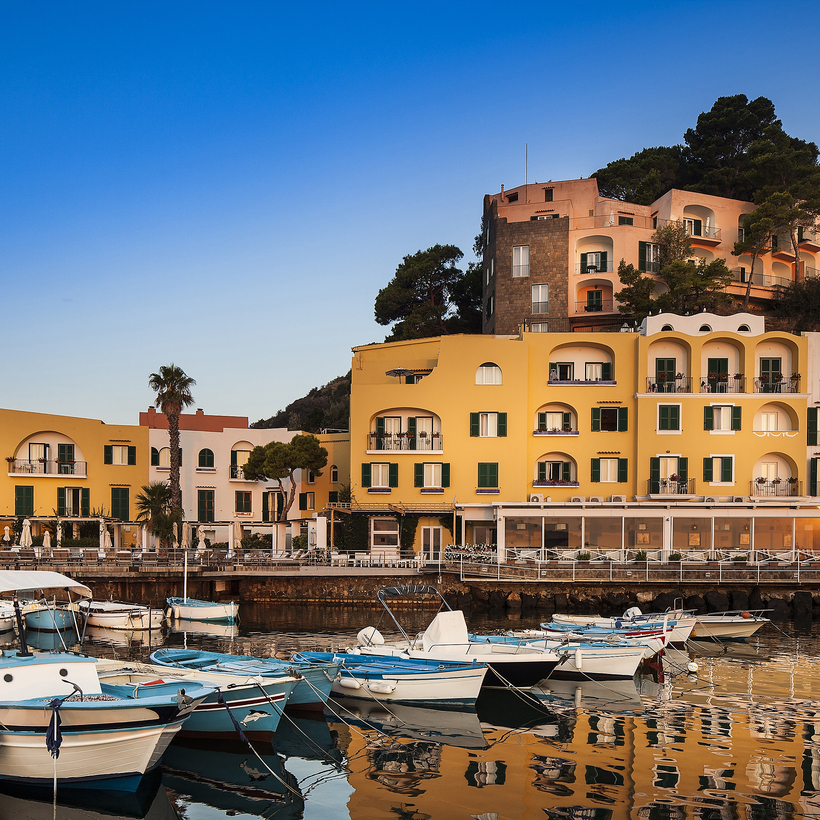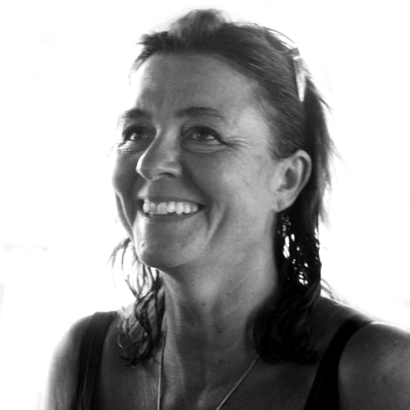Warm, brown mud was slathered onto my torso like Nutella on a baguette. Then, like that takeaway sandwich, I was wrapped in cellophane and left to sweat.
Fangotherapy, or mud bathing, is the principal detoxifying, anti-inflammatory, regenerative cure and raison d’être at the Regina Isabella thermal spa, in Ischia. The mud is harvested from an underground source and infused for months in basins of thermal water rich in sodium, potassium, magnesium, and calcium.

If I can make it through at least six of these, they may help to rebuild my immune system, which is why mud bathing is such a popular pastime for those of us suffering from long COVID.
I came to this volcanic island, less fashionable than neighboring Capri, for its health-centric tourism. Here, there are more than 30 spas with hot springs, where water (ranging in temperatures of up to roughly 170 degrees) bubbles up from fissures in the earth. It contains traces of radon—but at low levels that aren’t harmful—and this radioactivity assists in the absorption of the salts and is said to have a soothing effect on the psyche. Thermal waters have long been believed to help alleviate skin ailments, respiratory problems, and arthritis.

Balneotherapy, the practice of healing through bathing, is an important part of Ischia’s history; Giuseppe Garibaldi came to the peaceful town of Casamicciola Terme in 1864 to recuperate from the injuries he incurred during the Italian Wars of Independence. The Romans invented the concepts of the “spa”—salus per aquam, or health through water—and terme (hot springs), or the practice of using natural thermal and mineral waters to heal, both of which were central to their sense of self and society.
The healing waters have drawn visitors to Ischia since roughly 800 B.C. The ancient Greeks who landed at San Montano Bay around then ascribed supernatural powers to the phenomenon, imagining the giant Typhon banished to the bowels of the earth for daring to fight Zeus. His hot tears were said to be turned by Aphrodite into curative springs.

Ironically, the Christians canceled the Old Testament concept of cleanliness being next to godliness; they believed that the path to heaven was through praying, not bathing. After the fall of Rome, the abandoned terme were turned into churches, and centuries passed before the spa practice was revived.
The Italian government even subsidizes one cycle of 12 thermal treatments each year at certain spas. This was declared a preventative health measure, but it was also a sneaky way to increase workplace productivity.

Today, San Montano Bay is home to Negombo, a thermal hot-spring park (such things exist!) that is open to the public. For $75 a day, visitors can roam Edenic gardens of rare ferns, carob plants, and spice trees that provide scented shade to 14 pools. Under the umbrellas of its beach club, sun worshippers show off their new Fendi bikinis, but serious yogis will find meditation spots high among the green canopy. There are also restaurants—one devoted entirely to the tomato—and a shop.
But Negombo is nothing like the Regina Isabella, built between the cliff and shoreline in Lacco Ameno by the publisher and filmmaker Angelo Rizzoli. Previously, it had been a thermal clinic owned by his wife’s gynecologist, but Rizzoli added some columns, a bit of purple lighting, and a Cecil B. DeMille–style “Roman Destination Spa,” and its Old Hollywood glamour has been going strong since 1956. Elizabeth Taylor, who memorably threw Richard Burton’s clothes off the balcony of Room 370 during a lovers’ tiff, used mud bathing as a way of getting into the character of Cleopatra. More recently, the television adaptation of Elena Ferrante’s My Brilliant Friend was filmed nearby.

As I found myself cocooned in a mud straitjacket, I wondered if Ischia’s curative tendencies would work for me too. But then I got the urge to burst out of the plastic packaging and scratch my itchy nose. After another 20 minutes of this, I retired onto my private terrace and watched the moon rise over the Aleppo pines. And somehow my own sense of well-being seemed to mimic its ascent.
Catherine Fairweather is a West Country of England–based writer


